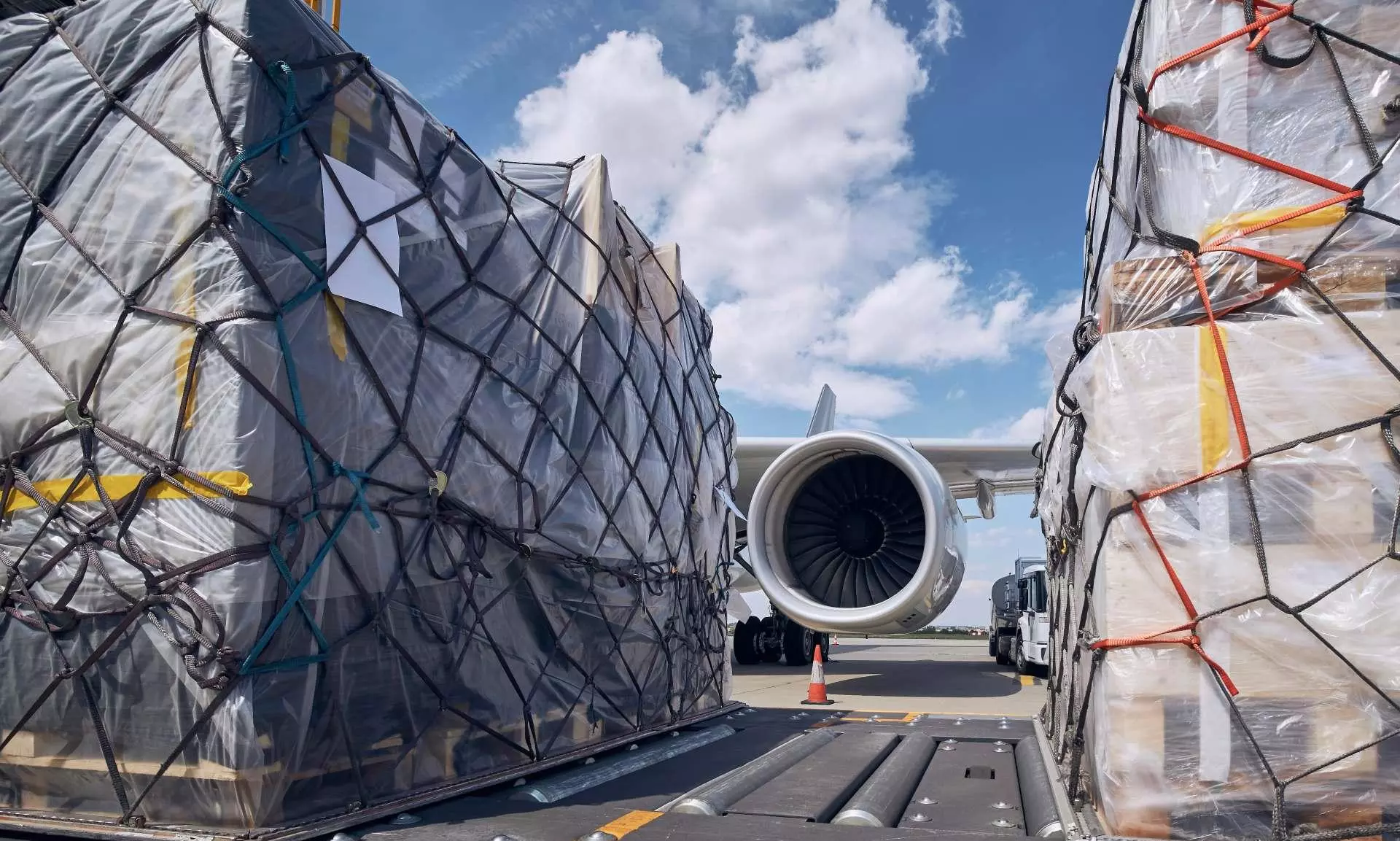Indian air cargo: Rising above the rest

The Indian air cargo industry holds the potential to beat the competition and achieve the ambitious targets it has set for itself. But it also depends upon its ability to be agile and resilient to the structural challenges within.
The Indian low-cost carrier Akasa Air on January 18, 2024 announced a firm order of an additional 150 737 MAX aircraft with Boeing. In 2021, Akasa Air had placed its initial order of 72 Boeing 737 MAX aircraft, which was followed up with an order of 4 737 MAX 8 aircraft in June 2023. The new deal, takes the airline’s order book to a total of 226 aircraft. Akasa Air currently operates a fleet of 22 aircraft and will receive deliveries of a total of 204 aircraft over the course of eight years.
About the plans, Vinay Dube, Akasa Air founder and CEO, said, “In addition to supporting our rapid domestic expansion, the efficiency and economics of these new airplanes position Akasa to launch international routes in the coming months.”
India is not new to big aircraft orders. In January 2023, Air India placed the order of 470 aircraft across Boeing and Airbus and in June 2023 IndiGo placed a firm order for 500 A320 family aircraft.
The Indian airlines are not only looking at the revenue potential of passengers that can travel on these newly ordered aircraft but also the cargo that they can move. With a total of 15 freighters and five airlines owning them and more Indian carriers joining the trend, they are serious about having more cargo planes to be agile in the freight market. Even though Indian airlines have deep roots in domestic cargo movements, it is important to note that international movements are heavily dominated by foreign airlines, particularly middle east carriers. India, with the new players and new orders, is displaying its intention to capture that market as well.
In fact, the Indian government has set an ambitious target of 10 million tonnes for Indian air cargo to achieve by 2031 from the current 3 million tonnes.
Even the global air cargo players, which includes the aircraft OEMs, airlines, airports, ground handlers and aircraft lessors, are bullish about India achieving it with the country’s growth as a manufacturing hub.
For instance, WFS, a member of the SATS Group, marked its India foray with the launch of operations at Kempegowda International Airport (KIA), Bengaluru in May 2023. WFS Bengaluru is a 74:26 joint venture between WFS and airport operator Bangalore International Airport (BIAL) and it will operate a cargo terminal facility with a concession period of 15 years. WFS has also become the exclusive operator of BLR’s dedicated cold chain facility.
While launching it, John Batten, CEO, Europe, Middle East, Africa & Asia (EMEAA), WFS, had mentioned, "As the global leader in air cargo handling, WFS looks forward to adding value to the Indian air cargo industry through the introduction of world class practices, ensuring better efficiency and driving productivity improvements, which we believe to be well aligned with the Government of India’s National Air Cargo Policy and related ambitions.”
Both aircraft OEMs Boeing and Airbus are increasing their presence and capability within the country not only to address the current demand but also to prepare for the future.
Boeing's recent initiatives in India include a freighter conversion line in Hyderabad, a distribution centre in Uttar Pradesh and MRO localisation. Boeing opened a 36,000-square-foot distribution centre in Khurja, Uttar Pradesh in January 2024 to support customers in maximising fleet utilisation. The centre intends to support the needs of spare parts and thus will reduce lead times, improve availability, and support the MRO industry.
Giving a big boost to India's future need for freighters and freighter conversions, Boeing signed an agreement with GMR Aero Technic to establish a new Boeing Converted Freighter (BCF) line in Hyderabad. GMR Aero Technic is the first Boeing supplier in India that will have the capability to support future conversions of both domestic and foreign aircraft.
“Our cooperation with GMR Aero Technic not only a testimony of the maturation of Indian MROs in the country to support the vision of Aatmanirbhar Bharat, but also supports the anticipated growth of the cargo sector in the region,” said Salil Gupte, president, Boeing India.
According to Boeing’s Commercial Market Outlook, India’s air cargo growth is expected to average 6.3 percent annually, driven by the country’s manufacturing and e-commerce sectors, including its Make in India initiative. Boeing forecasts demand for more than 80 freighters, including production and converted freighters in the next 20 years.
On the same line, Airbus in November 2023 partnered with Hindustan Aeronautics (HAL) to support their entry into servicing of commercial aircraft, “seeking to strengthen the aircraft Maintenance, Repair and Overhaul (MRO) industry in India.”
Through this partnership, Airbus supports HAL to tap into the growing demand for MRO services for the country’s expanding commercial fleet, especially the A320 family of aircraft that have democratised air travel in India.
Meanwhile in October 2023, AerCap Holdings delivered its first Airbus A321 Passenger-to-Freighter (P2F) aircraft to IndiGo. The aircraft conversion was completed by Elbe Flugzeugwerke (EFW) before being delivered to IndiGo at ST Engineering Aerospace in Singapore.
Other recent freighters that entered the Indian market include that from the launch of Amazon Air in India and Pradhaan Air Express. Pradhaan Air started its operations in October 2022 with the world's first A320 converted freighter. Since then the freighter has flown several flights connecting Indian cities as well as Southeast Asia. In May 2023, India's youngest cargo airline inked an MoU with Teleport, a logistics venture of Capital A (previously known as AirAsia Group) to further increase Teleport's cargo network coverage and palletized capacity on critical sectors connecting India and Southeast Asia. And in a recent development in November 2023, Ras Al Khaimah-based Vaayu Group became an investor in Pradhaan Air on the sidelines of the Dubai Airshow 2023 which opens up business opportunities in the Middle East for Pradhaan.
Amazon India in January 2023 launched Amazon Air, making it the first e-commerce company in the country to have a dedicated air cargo network. Amazon Air is utilising the complete cargo capacity of a Boeing 737-800 aircraft, operated by Quikjet Cargo Airlines, a joint venture between AFL and the Ireland-based ASL Aviation Group.
Spicexpress, another important player in the air cargo ecosystem, recently got engaged into some interesting partnerships with the e-commerce logistics company Ekart and most recently with Star Air.
With its partnership with Ekart, SpiceXpress intends to strengthen its door-to-door delivery capability. Ekart will provide first-mile pickup of cargo shipments and will also help deliver them through last-mile connectivity across all serviceable pin codes in the country. Meanwhile, with the Star Air partnership, SpiceXpress get to manage the belly space capacity for cargo transportation in Star Air's fleet of nine aircraft.
While the competition for aircraft orders, entry of new players and freighters show investors confidence on Indian aviation’s future, the country is also infamously called the graveyard of airlines due to the sheer number of airlines that failed to take-off with a sustainable business proposition, with Go First being the most recent example. Also, the absence of Cape Town Convention norms in full force makes India, on the other hand, a really dangerous market for investors and this is clearly visible among the biggest aircraft leasing companies.
The struggle was particularly visible during the collapse of Jet Airways and more recently with Go First. While there are positive signs on Cape Town Convention coming into full force in India, the recent difficulties has also forced the government to issue a notification in October 2023 exempting transactions or agreements under the Cape Town Convention relating to aircraft, aircraft engines, airframes and helicopters from the purview of moratorium provisions under Section 14(1) of Insolvency and Bankruptcy Code, 2016, which takes India closer to its commitment under the Cape Town Convention.
There are both red and green flags when it comes to the future of Indian air cargo and aviation. The trajectory which it takes depends upon the policy decisions of the government and business decisions made by the industry. But what is indisputable is the potential it holds to rise above the rest.
This article was originally published in Indian Transport & Logistics News' Jan-Feb 2024 issue.

Libin Chacko Kurian
Assistant Editor at STAT Media Group, he has six years of experience in business journalism covering food & beverage, nutraceuticals and now logistics. His current passion is to understand the nuances of global supply chains and their current turmoil. Outside work, he is also interested in philosophy, history, birding and travelling. Mail him: libin@statmediagroup.com Follow on LinkedIn


